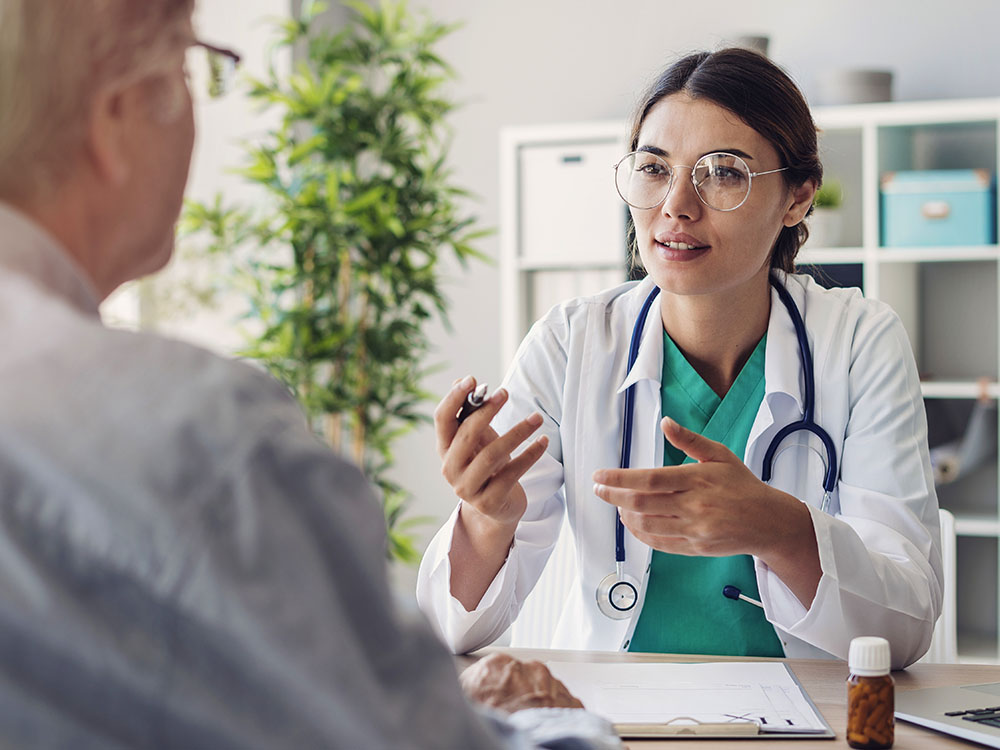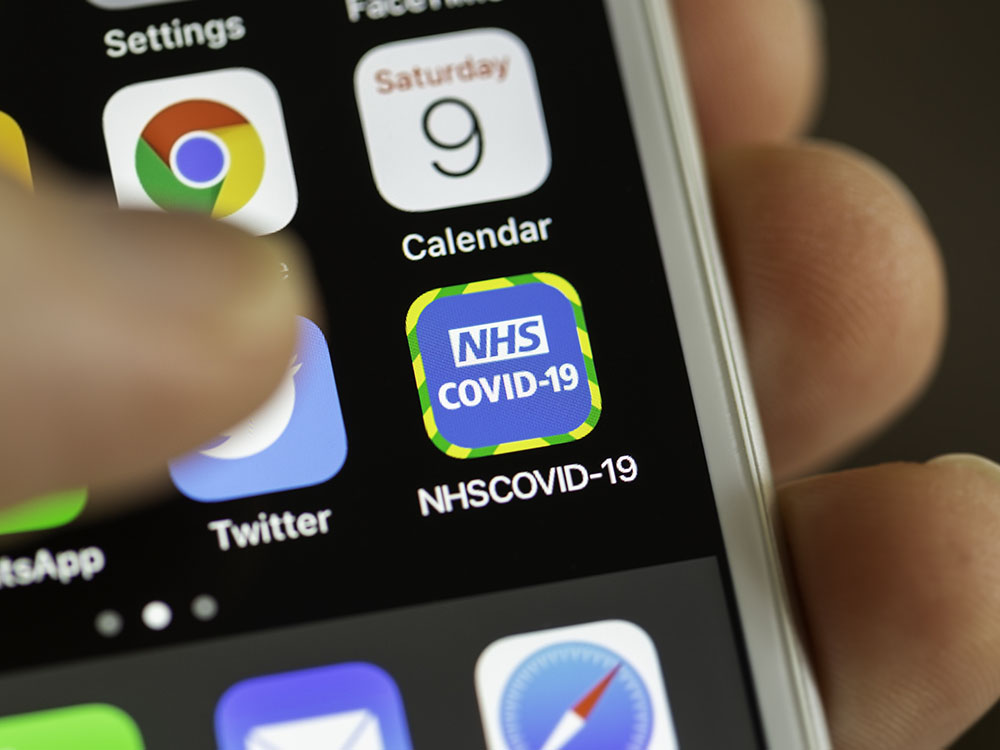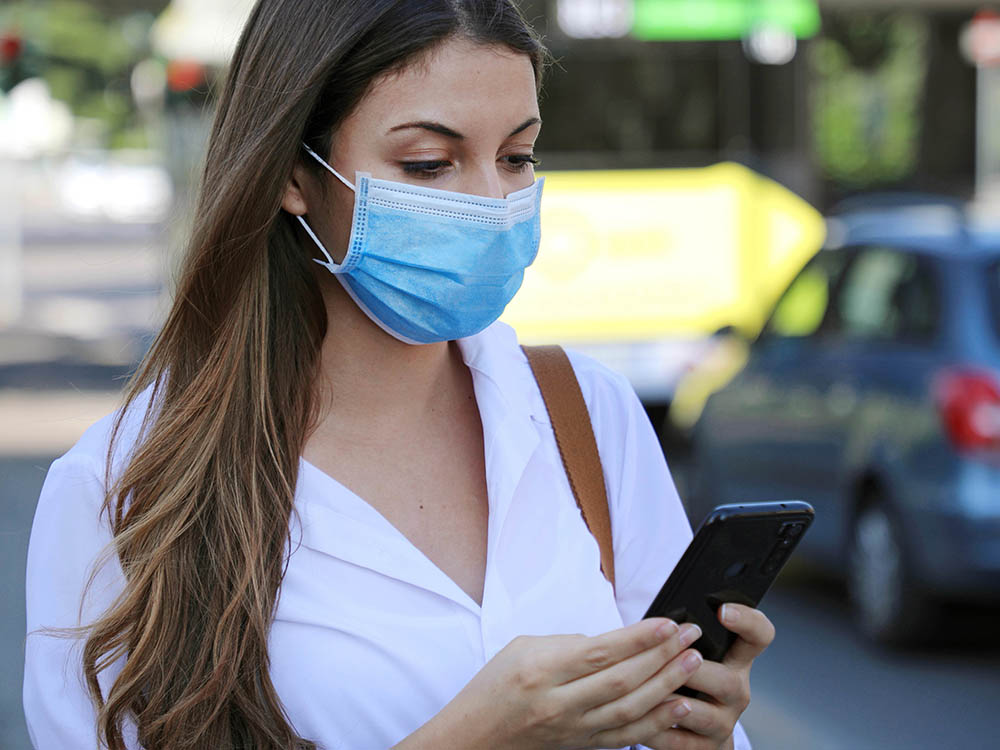
© Paulista / AdobeStock
Corona as a Research Topic
The pandemic is a challenge for us all. For science it means interesting research.
Since the beginning of the year, the pandemic has had a hold on all aspects of our lives. The virus has also led to the normal teaching and research operations at the university no longer being possible. At the same time, scientists from various fields have carried out research on corona and its effects. Here are some examples:
Virologist Hard at Work at the University of Bremen
Professor Andreas Dotzauer is head of the Laboratory for Virus Research at the University of Bremen. For months now, the virologist has been a sought-after interviewee for the media and politics and continues to explain with expertise and patience what the scientific field knows about the virus, how the numbers can be interpreted, and what individuals can do to protect themselves. He also doesn’t hide his assessments, for example when talking about the suitability of planned easing of restrictions. It is his scientific strictness that gives him credibility. He is currently working intensely on the scientific studies regarding coronavirus.
How the Public Health on COVID-19 Competence Network is Helping to Keep an Overview:
Our knowledge of the virus is still restricted. At the same time, politicians must make important decisions that affect us all. A network made up of around 20 specialist societies from Germany, Austria, and Switzerland, including the University of Bremen, is to help to improve the basis for such decisions. One of the network’s founders is Professor Ansgar Gerhardus from the Institute of Public Health and Nursing Research at the University of Bremen. “It was important for us that current and interdisciplinary expertise on COVID-19 was quickly available for the discussions that are being held at the moment and for the decision-making processes. In topic-based working groups, we are providing the best scientific news as summarized information.” Members of the competence network are in direct contact with the decision makers in ministries and federal offices.

© Gorodenkoff / AdobeStock
What Are the Long-Term Effects?
At the Leibniz Institute for Prevention Research and Epidemiology (BIPS), research on the long-term effects of the coronavirus is being carried out together with the Health Department. The affected persons are being interviewed by phone or online. “We are taking a look at the different courses of the illness,” explains Hajo Zeeb, professor at the University of Bremen and BIPS department head. “We are particularly interested in what happens after one has been infected.”
Additionally, the institute has taken on the scientific assessment of the regular special reports of the infection situation in childcare centers and schools. “We want to find out who passed the infection on to them. With this information, we hope to acquire insight into which measures are effective and where improvement is needed,” according to Zeeb. They also make recommendations. Their work has the larger aim of controlling the spread of infection.
How Can the NAKO Health Study Data Help?
The NAKO Health Study – a national health study with 200,000 participants, which began in 2014 – is being used to research the short-term and long-term effects of the corona pandemic. The study offers the ideal starting point for the analysis of the pandemic effects on the health of the German population. BIPS is carrying out the study as one of 18 study centers across Germany. NAKO holds health data from the public for the period directly before and at the beginning of the pandemic. All 205,000 NAKO participants were asked by means of an additional form to provide information on their health status, their (possible) experiences with specific COVID-19 symptoms, their social contacts, and possible psychological effects of the restrictions in place. “Alongside physical effects of an infection, it is important for us to also consider aspects such as social isolation and loneliness in the general public,” says Dr. Kathrin Günther, study center director of NAKO in Bremen.

© Sebra / AdobeStock
How Do Apps Help?
In the fight against the spread of the corona pandemic, tracking contact with apps can be an important component for reducing the rate of transmission and could support the work of health authorities. This is what experts from the Public Health on COVID-19 network have found out. The experts from the Public Health on COVID-19 network, of which the University of Bremen professors Hajo Zeeb and Ansgar Gerhardus are a part, have analyzed scientific contributions on the effectiveness of contact-tracing apps from journals, texts from news magazines, and web-based content. This was done under the direction of Tina Jahnel, a scientist from the Institute of Public Health and Nursing Research at the University of Bremen.

© Anthony Brown / AdobeStock
What Is Moving People in the Corona Pandemic?
Which thoughts and emotions are connected to the current extraordinary situation? Which daily circumstances protect our mental health and which ones trigger stress? How does our own perception of the danger posed to us change and how is the threat posed to persons close to us assessed? Those are the most important questions of the research project that the Institute of Public Health and Nursing Research at the University of Bremen posed for their Stress and Resources in Times of the Corona Pandemic study.

© zigres / AdobeStock
What Expectations Do People Who Are Making Their Bodily Data Available Have?
In a short study, the Institute of Public Health and Nursing Research is researching the corona data donation app from the Robert Koch Institute. By means of survey, the scientists wish to find out which feelings and expectations people connect with the donation of their bodily data. Alongside the postcode, the “data donation app” passes on various vitals (pulse, heart rate variability, stress, temperature, weight, blood pressure) and sociodemographic data (age, height, gender, weight). However, not all data is necessarily recorded – this is dependent on the device and willingness of the donors.
Whilst the Robert Koch Institute analyzes the data, little is known about the motivation, (bodily) experience, and significance of the data donors. This is to be researched in the frame of qualitative interviews.
How Are Students Doing in Times of Corona?
A collaborative study by the Leibniz Institute for Prevention Research and Epidemiology (BIPS) and the Faculty of Human and Health Sciences wants to find out how students are coping with the crisis. The result: The lives of many students have changed drastically due to corona. Since the beginning of the restrictions, they have had far less contact to family and friends. A large proportion also stated that they are experiencing stress thanks to the changes in teaching. Nearly half of the students are worried that they will not be able to successfully finish the university year due to the COVID-19 outbreak. The financial situation is also seen critically by many: More than 16 percent of the participants stated that they do not have sufficient funds at the moment. The majority feels that they have been well informed on the changes and measures by the university.
How Can Fake News Be Stopped?
COVID-19 related misinformation is mainly spread via social media. A research project intends to investigate whether interventions based on nudging can help to curb the spread of misinformation. The project has the potential to contribute to reducing misinformation. The project was developed within the Leibniz ScienceCampus Digital Public Health Bremen together with the Human-Computer-Interaction Research Group from the faculty of Mathematics / Computer Science. Researchers from the Institute of Public Health and Nursing Research groups Health Promotion & Prevention, Social Epidemiology, and Health Services Research are active within this project.
What Risk Is Posed in Care Homes?
Those in need of care are some of those hit hardest by the corona crisis. 60 percent of all mortalities stem from care homes or persons supervised by care services. However, the related proportion of infected persons is only 8.5 percent. That is the result of a survey. A group of researchers led by the nursing professor Karin Wolf-Ostermann from the Institute of Public Health and Nursing Research and health economist Professor Heinz Rothgang from SOCIUM Research Center on Inequality and Social Policy carried out the online survey in outpatient and stationary care facilities. The survey data from 824 care homes, 701 care service providers, and 96 partially stationary facilities was analyzed. A high infection rate was found in connection to care staff.
How Is the Pandemic Affecting Care at Home?
A team led by Professor Rothgang (SOCIUM) and Professor Karin Wolf-Ostermann (IPP) have found out that there is a higher strain on caring relatives who carry out domestic care duties. More than 1,200 people who are registered as informal care persons and who may potentially be under double or triple strain due to care duties, jobs, and their own family based on them being under the age of 67 were chosen. It was shown that the perceived life quality and health of the carers is in some cases drastically reduced due to the changed framework thanks to the coronavirus pandemic. This does not stem from a coronavirus infection in itself but rather the combination of time-consuming care, lessened support, reduced social contact, working from home, and home schooling.
Which Societal and Political Issues Are There?
An interdisciplinary group at SOCIUM has published four papers on the corona epidemic. The health scientist Professor Gerd Glaeske, the political scientists Professor Philip Manow, and the legal scholar Professor Dieter Hart are involved. The papers deal with the societal, legal, and political dimensions of the pandemic. When will it be possible to return to normality? How can expedient prevention be further developed? How can citizen’s rights be protected in times of a crisis? Those are examples of some of the questions that are answered.
How Unfair Is the Distribution of Care Work?
“The corona crisis is making clear how relevant and yet under-appreciated jobs that are connected to care are,” according to Sonja Bastin from the Research Center on Inequality and Social Policy (SOCIUM). “The pandemic is making the situation worse,” adds her colleague Andrea Schäfer, “but is also only making a structural crisis in care work that has been around for a long time visible.” This so-called care work can be paid work, such as in adult care or childcare facilities, but may also be unpaid, as is the case with domestic care within families or parental leave periods. It is mainly women who take on these tasks. The economy and the state reportedly exploit this fact – mainly at a disadvantage to women.

© pikselstock / AdobeStock
Who Is Paying for the Crisis?
In times of the corona crisis, a great deal of money is being made available for the economy and society. How times change: A few weeks ago, the government was insisting on economic discipline and breaking even in the frame of the debt brake. Where is the money coming from? Jutta Günther, professor of economics at the University of Bremen believes the state support measures to be the right thing to do. It is, however, still too early to make definite statements, she explains in an interview with up2date. Economic history has taught us that the classic solutions is the raising of taxes and duties – sometimes also special levy. How and when the debt will be settled is still being negotiated by politics and society.
How the Pandemic Is Affecting Africa
Klaus Schlichte from the Collaborative Research Center Global Dynamics of Social Policy at the University of Bremen has taken a closer look at the COVID-19 pandemic in African countries and the measures taken by governments there. “There are differences between countries, but repressive measures dominate,” says the political scientists with regard to the governmental reactions to the spread of the novel coronavirus in Africa. Economically, the COVID-19 pandemic is hitting African societies hard. Tourism, which is of great importance in the coastal regions as well as inland in the form of safaris, is experiencing a massive slump, he explains. “More important, however, is the decline in so-called remittances (i.e. money transfers from family members working in Europe, for example). As a result, the most important source of foreign currency in African economies is collapsing.”